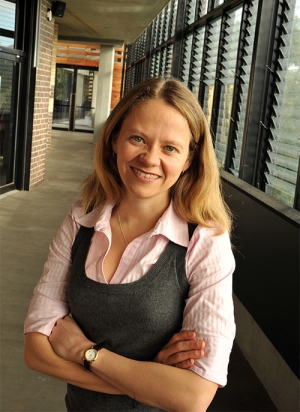Can rewarding activity make the difference?
Research news
Rewarding people for being active? It might seem uneconomical – and unimaginable to previous generations - but the idea of providing rewards to encourage increased activity is being given serious consideration.
In their bid to improve people’s fitness and achieve real gains in long-term health, researchers from Deakin University’s Centre for Physical Activity and Nutrition Research (C-PAN) are about to test the concept in a new project, called ACHIEVE.
C-PAN’s Alfred Deakin Professor Kylie Ball is focussed on two primary goals in her efforts to improve the nation’s health – to get Australians moving and eating better food. Her research has shown that offering incentives could be an effective way to change people’s long-term physical activity and nutrition habits.
Professor Ball has led a research program in physical activity and nutrition at Deakin since she joined the university 16 years ago. She was one of four researchers to establish Deakin’s Centre for Physical Activity and Nutrition Research (C-PAN), which is now a world class research centre supporting 52 staff and around 50 PhD students.
She explained that poor nutrition and physical activity are key risk factors for numerous diseases, including heart disease, diabetes, stroke, poor mental health, and weight issues, with almost two thirds of Australian adults now either overweight or obese.
“We are in the midst of an epidemic, with 58 per cent of Australians either sedentary or only undertaking low levels of physical activity. In fact, only 19 per cent of adults meet the target threshold of 10,000 steps per day,” she said.
The ACHIEVE project, led by Professor Ball, will be undertaken in partnership with the Heart Foundation and health insurer GMHBA, and is also funded by the Heart Foundation.
ACHIEVE will assess the effectiveness of offering incentives for increased activity levels. Eighty middle-aged people will be recruited to participate in the study, with this age group deemed most at risk of developing chronic disease, and therefore most likely to benefit from the program.
Over a four-month period, each person will wear a “Fitbit” wireless-enabled activity tracker that will measure the number of steps walked, the duration of physical activity and sleep and other metrics.
“This is a preliminary study that will show how successfully we can incentivise increased physical activity and reduced sitting time,” said Professor Ball.
“When the participants reach a certain level of activity or a reduction in the time they spend sitting, they will be eligible for in-kind incentives such as shirts, cookbooks, clothing or shopping discount vouchers.
"Research has found that these kinds of incentives are less detrimental to intrinsic motivation, compared to outright cash payments, so the participants are more likely to continue their new regime once the project has ended.
“Juggling multiple priorities often leaves people with little time or motivation to squeeze healthy behaviours like physical activity into their lives.
"People may need additional support and motivators to help make these behaviours a habit. Research has shown that incentives can improve diet and smoking cessation, and we are keen to see if they also help improve physical activity.
“Changing people’s habits is a challenge. If it was simple, it would have been resolved by now.”
Professor Ball is optimistic that the strategies, if successful, could be introduced on a larger scale.
The ACHIEVE project will commence in May, with early results available mid-2016.
Share this story
 Alfred Deakin Professor Kylie Ball.
Alfred Deakin Professor Kylie Ball.
